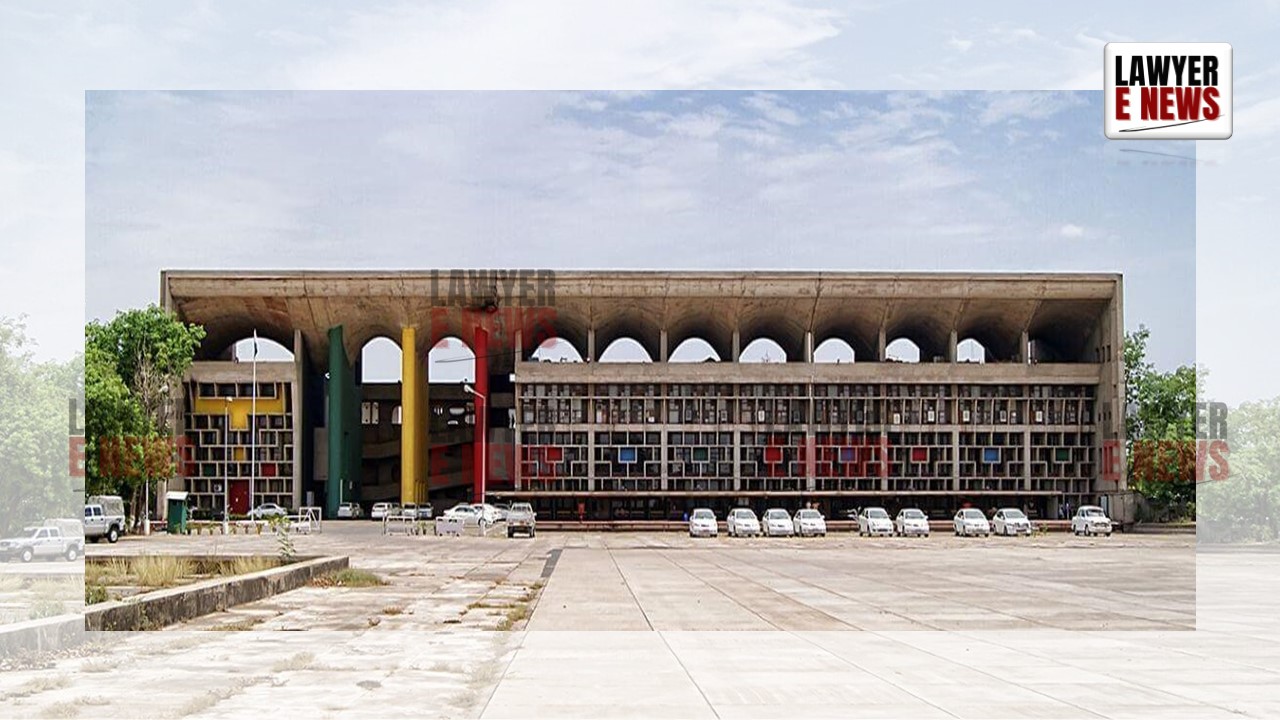-
by Admin
16 February 2026 1:47 PM



Punjab and Haryana High Court dismissed challenges to trial court orders rejecting amendment applications filed under Order 6 Rule 17 of the Code of Civil Procedure, 1908 (CPC). The Court upheld the trial court's decision, ruling that the amendments sought were barred by the proviso to Order 6 Rule 17 CPC, lacked due diligence, and introduced inconsistent and contradictory claims.
“The proviso to Order 6 Rule 17 CPC mandates that no amendment shall be allowed after the trial has commenced unless the court is satisfied that the party, despite due diligence, could not have raised the matter earlier. In the present case, the petitioner has failed to demonstrate due diligence, and the amendments sought contradict prior pleadings, making them impermissible.”
The Court emphasized that once trial commences, amendments to pleadings can only be allowed if the party demonstrates that, despite due diligence, it could not have raised the matter earlier. The trial in the consolidated suits had commenced with the framing of issues on May 26, 2023, and the examination of witnesses.
“The petitioner’s explanation—that he was a layman and unable to convey facts to his counsel—falls short of the due diligence requirement under the proviso to Order 6 Rule 17 CPC. The facts sought to be introduced through the amendments were within the petitioner’s knowledge when the original pleadings were filed.”
The Court found that the amendments introduced claims that were fundamentally inconsistent with the petitioner’s original pleadings.
• In the first suit (CS/6330/2019), the petitioner asserted that his mother was the owner of the disputed property through a registered sale deed.
• In the second suit (CS/7032/2019), he claimed the property was purchased using funds inherited from his father.
• Amendment sought: The petitioner introduced a new plea that he had contributed Rs. 3,50,000 towards the property’s purchase, contradicting earlier claims.
The Court held:
“Courts cannot permit amendments that fundamentally alter or contradict prior pleadings. The petitioner’s attempt to introduce a new plea regarding his financial contribution to the property is not only inconsistent but also impermissible in law.”
The Court observed that the petitioner, in possession of part of the disputed property, was attempting to delay proceedings through repeated amendments.
“The petitioner has been in possession of a portion of the property since the suits were filed in 2019. The amendments sought are intended to delay the trial and frustrate the resolution of the counterclaim for possession filed by the respondents.”
The Court distinguished the present case from precedents where amendments were allowed to incorporate subsequent events. In Gurindesh Sandhu v. Kirron Kher (2023), amendments were permitted to avoid multiplicity of litigation based on new facts arising during the pendency of the suit. However, the petitioner in the present case sought to amend pleadings based on facts known at the time of filing the original suits and written statements.
The Court noted: “In the present case, there is no subsequent event or new material justifying the amendment. The judgment in Gurindesh Sandhu does not support the petitioner’s case.”
The disputes arose from two civil suits and a counterclaim concerning ownership and possession of a 200-square-yard property.
• First Suit (CS/6330/2019): The petitioner sought a permanent injunction to restrain the respondents from interfering with his possession, claiming the property was owned by his mother through a sale deed.
• Second Suit (CS/7032/2019): The petitioner sought a declaration of joint ownership, alleging the property was purchased with funds inherited from his father.
• Counterclaim (CS/9126/2019): The respondents sought possession of portions of the property occupied by the petitioner, asserting ownership through a valid sale deed executed by the petitioner’s mother in 2006.
The suits were consolidated in May 2023, and issues were framed on May 26, 2023. Subsequently, the petitioner sought amendments in all three cases to introduce a claim that he had contributed Rs. 3,50,000 towards the property’s purchase.
The Court dismissed the revision petitions, upholding the trial court’s orders rejecting the amendment applications.
1. Violation of Proviso to Order 6 Rule 17 CPC: The amendments were sought after trial commencement, and the petitioner failed to demonstrate due diligence.
2. Contradictory Pleas: The proposed amendments contradicted earlier claims, which is impermissible under law.
3. Delay Tactics: The petitioner’s conduct indicated an intention to delay the resolution of the suits and counterclaims.
4. Absence of New Material: The amendments were not based on any subsequent events or newly discovered facts.
The Court concluded: “All the impugned orders passed in the three cases are in accordance with law and deserve to be upheld. The revision petitions, being meritless, are dismissed.”
The Punjab and Haryana High Court’s judgment reaffirms the strict application of the proviso to Order 6 Rule 17 CPC. The judgment emphasizes that amendments sought after trial commencement must satisfy the due diligence requirement and cannot introduce contradictory or inconsistent claims. This decision underscores the importance of procedural discipline in civil litigation and the need to prevent misuse of amendments as a tactic to delay proceedings.
Date of Decision: December 20, 2024
